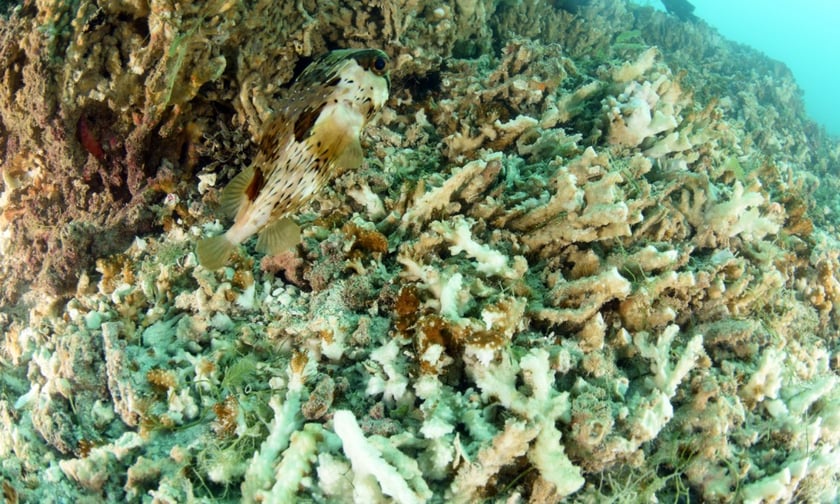

Rising ocean temperatures have caused another global coral bleaching event, marking the second time that such an incident has occurred within the past decade.
The event began in February 2023 and has now impacted coral reefs in every major ocean basin across 54 countries and territories, Bloomberg reported, citing a statement from the US National Oceanic and Atmospheric Administration (NOAA).
Scientists at NOAA have already recorded high coral mortality rates, with some reefs off Mexico’s Pacific coast seeing mortality rates of up to 93%.
Corals reefs depend on algae for sustenance, but excessive heat can cause these algae to become toxic. Without a source for nutrients, corals will lose their vibrant colours and die, leaving vital marine ecosystems at risk.
This latest global bleaching event is one of only four recorded global incidents, Bloomberg reported, but its impact on critical marine systems could disrupt approximately $2.7 trillion a year in goods and services.
According to Derek Manzello, coordinator of the NOAA Coral Reef Watch, the shift from the current El Niño phase to a cooler La Niña may offer some relief to affected areas by decreasing the extent of reef areas impacted. But the recent extreme increases in ocean temperatures may also disrupt usual weather patterns.
“It is going to take some time to truly understand the impacts from this event,” he said.
In Florida, extreme heat led to total coral mortality in some areas last year, with ocean temperatures reaching 38.3°C, according to the Coral Restoration Foundation.
Meanwhile, Australia confirmed in March that the Great Barrier Reef is undergoing its fifth mass bleaching event since 2016.
Scientists have previously posited that the Great Barrier Reef could soon face extinction due to rising ocean temperatures, as well as water pollution from fertiliser used by local farmers.
Have something to say about this story? Feel free to comment below.
